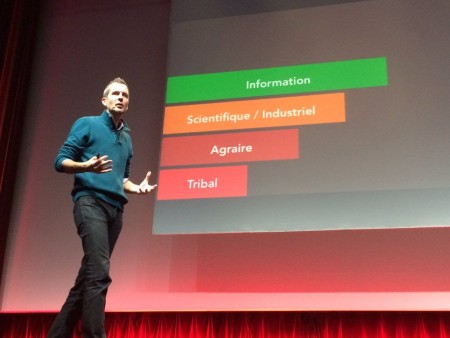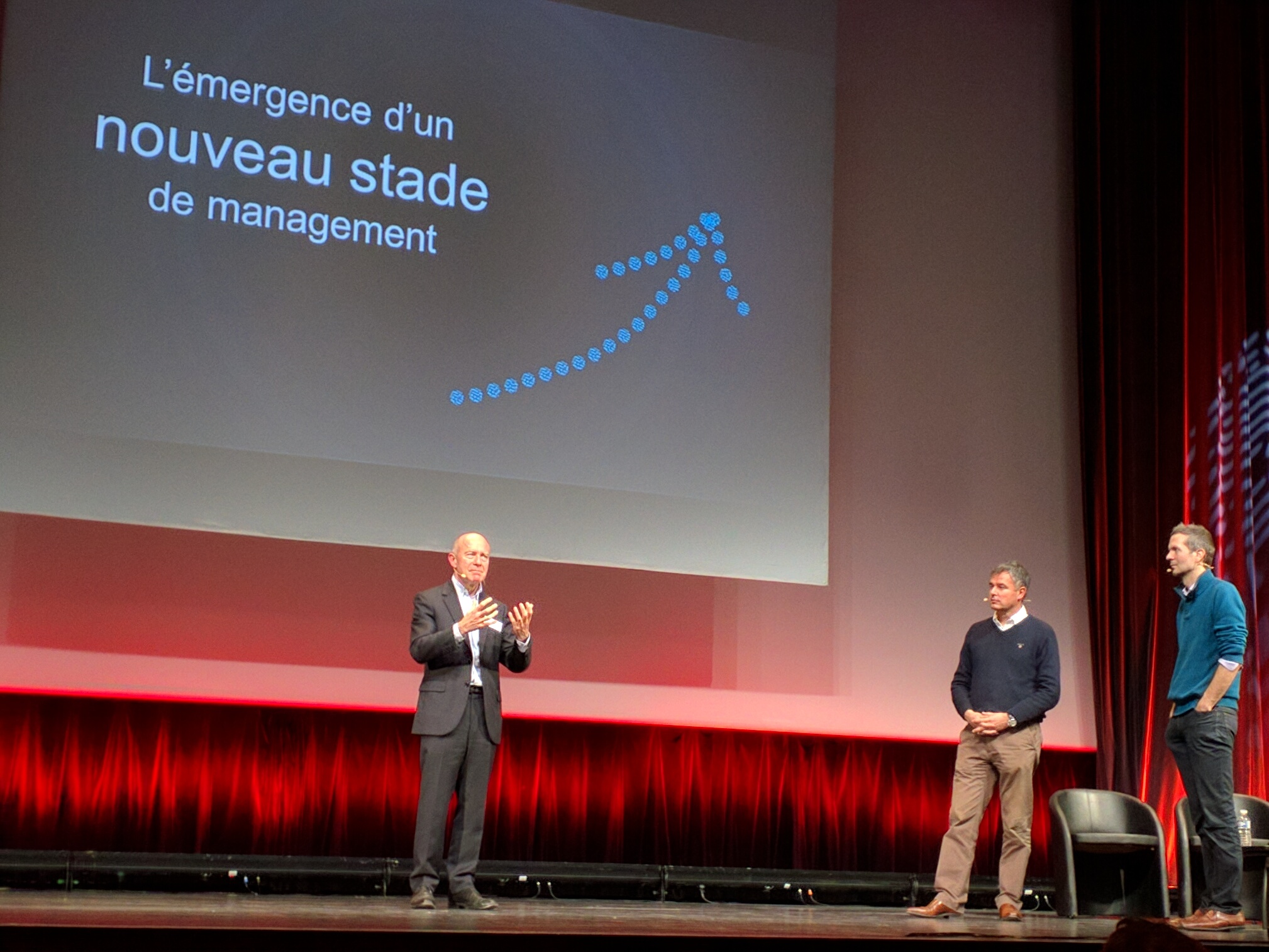 On 13th January I attended an inspiring talk given by Frédéric Laloux, author of “Reinventing Organizations” (Nelson Parker, 2014) which documents a number of companies who rejected the command and control, hierarchy-based ways of operating in favour of “daring” to trust one’s people and giving them the authority to decide how the company operates… and been commercially successful!
On 13th January I attended an inspiring talk given by Frédéric Laloux, author of “Reinventing Organizations” (Nelson Parker, 2014) which documents a number of companies who rejected the command and control, hierarchy-based ways of operating in favour of “daring” to trust one’s people and giving them the authority to decide how the company operates… and been commercially successful!
The challenge, in his words, is this: Is it possible to reinvent organizations … that makes work productive and meaningful? Can we create soulful workplaces … where our talents can blossom and our callings be honored?
I was struck by the simplicity of his three key principles. They don’t form a “model” one needs to follow slavishly. They give business leaders a framework with which they can construct their own local model, which works in their own company culture and business environment.
The three principles are:
- Self-management. There is no boss, and no middle management. The people who do the work make the decisions. The organisation is there to help them do this more effectively. The big step for the business leader is trusts for her or his people. If she or he is not prepared to take this step, she or he should not start the journey
- Wholeness. This is no “new age” concept, but is about helping people to bring their whole selves to work, rather than just their “efficient and rational” parts, when they have so much else they can, and want to offer.

- Evolutionary purpose. Out go the rigid business plans coming from the top. In comes emergent strategy, much in the line of Minzberg’s study of how things actually work in strategy making, rather than defining one’s future, then implementing the plan to achieve it – a fairy tale in today’s complex and uncertain environment, yet we hold it so dear because it gives us some illusion of control.
A particularly moving moment for me was when the CEO of a medium-sized transport business (in the center of the photo) came and testified of his journey, which was first of all personal. This new way of operating challenged his very identity, and it was the fact he worked on himself and changed himself that was the key to him letting go, and letting the transformation of his company be led by his people. His humilty and depth were born of experience – this was no marketing gimmick.
I’m thinking of all this in the context of the Paris COP21 agreement for the future of our planet. The framework Laloux proposes is inherently sustainable, because the freedom it gives for action enables companies to respond in an agile manner to a volatile environment.
Putting all this together with Jeremy Rifkin’s writings on the “Empathetic Civililization” and his vision of a collaborative economy fills me with excitement.
Something big is going on – I intend to be a part of it.
